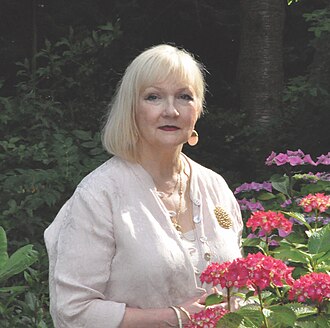Discover Your Roots
SIGN UPDiscover Your Roots
SIGN UPGriselda is a female name of German origin, meaning "Gray Battle/Strong Woman." Derived from Proto-Germanic elements *grīsaz, which means "grey," and *hildiz, meaning "battle," the name symbolizes resilience and strength. It is also associated with patience and obedience, as depicted in European folklore, art, literature, and opera. Griselda is used in English, Italian, and Spanish, and has variations such as Grizelda, Grisselda, Grieselda, Gricelda, and Criselda. Common nicknames include "Zelda," "Selda," "Grissy," "Gris," "Grisel," "Grizel," or "Crisel." Notable individuals bearing this name include historical figures and modern achievers from diverse fields. Griselda represents a powerful and enduring feminine identity, embodying both resilience and grace.

Griselda Frances Sinclair Pollock, born on March 11, 1949, is a prominent British art historian known for her influential work in analyzing visual arts and visual culture through global feminist and postcolonial feminist perspectives. Since 1977, she has been an influential scholar of modern, avant-garde, postmodern, and contemporary art, making significant contributions to feminist theory, feminist art history, and gender studies. Pollock's pioneering feminist approach to art history aims to deconstruct the historical lack of appreciation and recognition of women in art, challenging traditional art historical narratives that primarily focused on male artists. Her research offers critical insights into the social dynamics that have shaped the sexual political environment within art history, ultimately leading to a shift in focus towards the work of female artists. Pollock's theoretical and methodological innovations, particularly exemplified in her book "Vision and Difference" (1988), remain influential in contemporary art discourse, addressing political subtexts related to the portrayal of women in advertising. Pollock's groundbreaking contributions to feminist art history and cultural studies have earned her prestigious accolades, including the 2020 Holberg Prize. As a founding director of the Centre for Cultural Analysis, Theory, and History at the University of Leeds, she has played a pivotal role in transdisciplinary projects connecting fine art, cultural studies, and post-colonial critique. Pollock's impactful work continues to reshape the landscape of art history and cultural analysis, leaving an indelible mark on the field

Griselda Norma Allan (22 November 1905 – 23 August 1987) was an English artist renowned for her exquisite flower paintings. Born in Sunderland, England, Allan hailed from a prominent shipbuilding family. She received her education at the Church High School in Sunderland and the St Felix School in Suffolk. Allan honed her artistic skills at the Sunderland School of Art, which is now part of the University of Sunderland. Her journey led her to the Royal College of Art in London, followed by studies in France and Germany. During World War II, Allan contributed to the war effort through her teaching and recorded the war work in shipyards through her paintings. Post-war, she returned to Sunderland and delved into capturing the beauty of nature in her art. In 1949, she tied the knot with Karl E Buddeberg. Her remarkable works are held in esteemed institutions such as the Imperial War Museum and the Sunderland Museum and Winter Gardens. Allan's legacy lives on through her timeless creations, showcasing her deep appreciation for the natural world.



All images displayed on this page are sourced from Wikipedia or Wikimedia Commons.We use these images under their respective Creative Commons or public domain licenses. Wherever applicable, author attributions and license information are provided. If you believe an image is used incorrectly or outside its license terms, please contact us so that we can review and correct the issue.